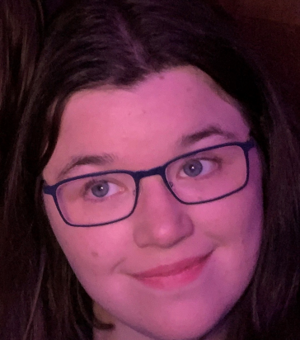Shelley Castle
Research Topic
The Immediate and Long-Term Military, Medical and Social effects of the Chemical Weapons used in the First World War
Supervisor: Professor Mark Harrison
I am a First World War military medical historian with a background in both military medicine and history of war. I am also one of the few historians at Oxford researching the history use, implications and impact of chemical warfare during the First World War and beyond
I hold a bachelors degree in History from the University of Hertfordshire and a masters degree in First World War Studies from the University of Birmingham which was awarded a high merit.
I am currently a DPhil in the History of Science, Medicine and Technology assessing The Immediate and Long-Term Military, Medical and Social Implications of First World War Chemical Weapons. This research is a culmination of 10 years of investigation into the effectiveness, impact of, response to and use of gas during the Great War. This thesis also includes assessments on the effectiveness of gas as a weapon including its psychological effects and impact on tactical effectiveness. In addition to using pension files, obituaries and the 1921 census to investigate the long-term effects of these injuries.
My work has also included comparative research into the development of tank and aircraft tactics, and investigations into the medical response to other war related injures including Shell-Shock, Wound Infection and Trench Nephritis.
I also hold a certification in lecturing from the Staff and Educational Development Association certification which is aligned with Descriptor 1 of by the UK Professional Standards Framework from The University of Oxfords Development of Teaching and Learning course
I have also advised the Museum of Military Medicine on their display of First World War respirators and several other medical advances seen during the conflict in 2018.
I hold an estimated 45 hours of undergraduate teaching ranging from archival, writing and research skills to the interwar disarmament processes and the legacy of the Great War, which I would like to expand upon, and 5 hours of undergraduate supervision. In addition to 15 hours of graduate teaching on research methodology.
Conferences
- Did they combat or concur: the complexities in the medical handling and understanding lung irritants and mustard gas during the First World War - 25 May 2023 - Medical Humanities PG-ECR Workshop held by the University of Oxford and Kings College, London
- The Development of The Medical Response to First World War Chemical Weapons - March 30th 2023 - British Society of the History of Science Postgraduate Conference
- Breathing Contaminated Air: The History of Protective Mask as a Panacea – June 2022 – The First World War respirator: the Race for Survival.
- History of Chemistry Seminar at the Masion Francaise d’Oxford – May 2021 – The Role of Chemists in the Development of First World War Respirators
- History Faculty Disability History Month Workshop, November 2021 - the long-term effects of First World War chemical weapons - co-organiser
- International Conference on Medical Humanities – March 2020 - The First World War, Chemical Warfare, Oxygen and Medical Education.
- British Society History Medicine Congress – September 2019 - Title - In Opposition to Standardisation – Treatment of Gas Injuries During the First World War
Funding
- Western Front Association PhD grant recipient
- Somerville College, Oxford, special projects grant.
I am keen to develop my list of publications. I currently have six publications in the Hertfordshire Constabulary Great War Society Magazine and two longer pieces currently under development for publication.
- Gas Protection and the Great War (Dec, 2015)
- Gas Delivery Systems and the First World War (Feb, 2016)
- The Battle of Cambrai 1917 – From Success to Disappointment (Feb, 2017)
- The Royal Flying Corps and its impact on the British Expeditionary Force; Reconnaissance and Artillery spotting (May, 2017)
- The Royal Flying Corp and its impact on the British Expeditionary Force; Ground Harassment (June, 2017)
- The Royal Flying Corps and its impact on the British Expeditionary Force; Restrictions (July, 2017)
I have also published book reviews on Thomas Hellers - The Great War and the Birth of Modern Medicine in July 2022 and M. Dorsey, Holding Their Breath: How the Allies Confronted the Threat of Chemical Warfare in World War II in July 2023, both for the Journal of Military Medicine.




